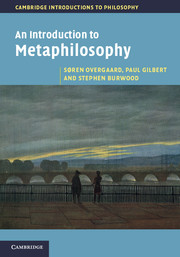7 - What is good philosophy?
Published online by Cambridge University Press: 05 March 2013
Summary
Introduction: a question of standards
Whatever philosophy is or ought to be, it is the sort of subject in which there are standards in terms of which good and bad examples can be distinguished. There may be disagreement over exactly what these standards are, but no practitioner of philosophy believes that anything goes, that any philosophical opinion is as good as any other. Even a Polish logician who declared, ‘In philosophy notoriously there are no standards’ meant only that his own particularly demanding standards were not commonly followed. But other philosophers were as likely to reject his standards as to fail to comply with them. In this situation agreement on what is good and bad philosophy often exists only among a particular group of philosophers working together in the same way.
A striking illustration of this concerns the controversy over the French post-structuralist philosopher Jacques Derrida. In 1992 Derrida’s name was put forward for the award of an honorary degree from Cambridge University. Very unusually a number of Cambridge academics objected to the award so that a vote had to be held. In the event the proposal was carried and Derrida was awarded the degree. Meanwhile, however, a letter appeared in The Times, signed by Barry Smith and eighteen other philosophers, objecting to the honour on the grounds that ‘M. Derrida’s work does not meet accepted standards of clarity and rigour’. The letter accuses Derrida of employing ‘a written style that defies comprehension’. ‘Where coherent assertions are being made at all’, the letter continues, ‘these are either false or trivial’, Derrida’s reputation being based on ‘little more than semi-intelligible attacks on the values of reason, truth and scholarship’.
- Type
- Chapter
- Information
- An Introduction to Metaphilosophy , pp. 162 - 187Publisher: Cambridge University PressPrint publication year: 2013



